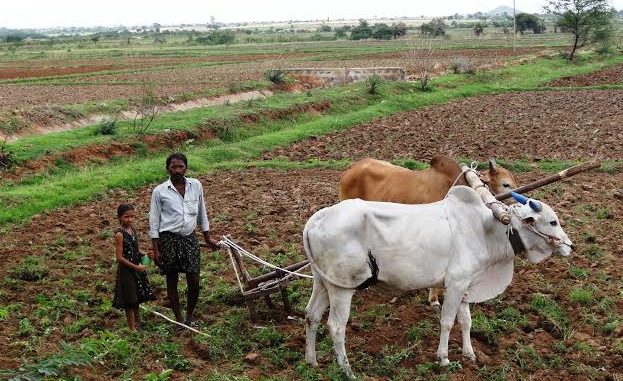
By Shoaib Daniyal
The Big Story: Crisis crops up
Faced with widespread protests against his government, Maharashtra chief minister Devendra Fadnavis decided to announce a farm loan waiver of Rs 30,000 crore, the biggest ever such write-off in the history of the state. That India’s richest state is now seeing a farmer agitation of this magnitude is yet another warning sign of the crisis Indian agriculture is now in. The country’s agrarian sector is inching along with key metrics such as productivity lagging behind even neighbours such as Bangladesh and being far behind the advanced economies of South East Asia and China. Things have got so bad that even prosperous cultivator castes such as the Jats of north India have spent much of the past two years agitating violently for job reservations – a magic wand to escape the agriculture sector.
This comes months after the new Bharatiya Janata Party state government wrote off Rs 36,359 worth of farmer loans in the state of Uttar Pradesh. In April, the Madras High Court directed the Tamil Nadu government to waive loans of all farmers in cooperative banks after the All India Anna Dravida Munnetra Kazhagam government had waived cooperative bank loans of farmers owning upto 5 acres land.
Clearly then, farm loan waivers are now a popular political instrument. It is easy to see why: they are quick and offer politicians an easy way to defuse farmer anger. But they are also harmful to the farmer in the long run.
First, is the glaring point that farm loan waivers only provide relief to someone who has taken a formal loan in the first place. This excludes most small-holding farmers and sharecroppers, who often do not have the social power often to procure a loan. In effect, a farm loan waiver excludes the most vulnerable farmers who are the worst hit due to the agrarian crises.
Then, as Reserve Bank of India governor Urjit Patel pointed out in April, such arbitrary waivers create a “moral hazard” – an event where a person takes more risks than normal, driven by the fact that someone else bears the cost of those risks. Patel explained that by waiving off government loans, private players are priced out of the market. Obviously, farmers would prefer public loans given that one day they might be waived off.
Earlier in March, State Bank of India chairman Arundhati Bhattacharya pointed out the long term effect of this: people who benefit from farm loan waiver often expect more waivers in the future and are reluctant to pay off borrowings. This has a ripple effect on the very availability of credit. A study showed that bank lending avoided districts with greater exposure to the 2008 United Progressive Alliance loan waiver, thus penalising all future borrowers.
Moreover, it is almost certain that other states will now clamber on to this bandwagon. In Uttar Pradesh’s case, given the poor state of its finances, the state will need the Union government’s help in backing up its massive waiver. If a significant number of states then waive off their own loans, it is unclear how the finances for such a large exercise will be managed.
India has a long, hard slog ahead in agriculture. It needs to focus on significantly increasing productivity following examples of Vietnam and China. For this it needs farmer education – often crop cultivation methods have changed little since the Raj – and the infusion of technology. Right now, farming faces a fundamental crisis of low productivity leading to low (and, sometimes, no) profitability. Crutches such as crop loans will do nothing to address this fundamental problem.
Source: Scroll.in

Leave a Reply